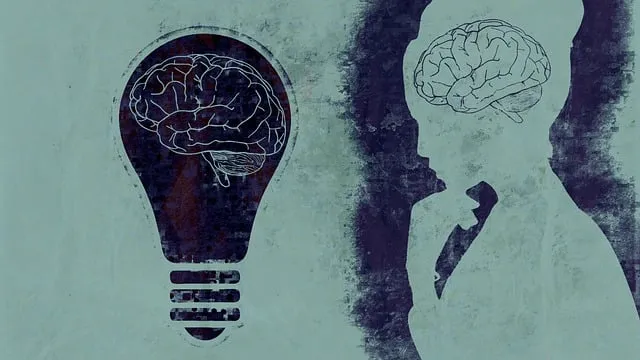The media's portrayal of mental health significantly shapes societal attitudes, either positively by raising awareness and reducing stigma or negatively by perpetuating stereotypes. With many people seeking information from media, accurate and diverse representations are crucial. A study from Westminster Kaiser Permanente highlights high interest in behavioral health services, emphasizing the need for accessible mental health content. By challenging harmful narratives, media can empower individuals with self-care practices and guidance, mirroring initiatives like Westminster Kaiser Permanente's Mental Wellness Podcast Series and Stress Management Workshops. Accurate and sensitive depiction of mental illnesses in popular culture is vital to combat stigma, promote understanding, and reduce oversimplification of complex conditions. Collaboration between media outlets and Westminster Kaiser Permanente behavioral health services can ensure authentic representations through expert insights, diverse voices, and integration of coping skills development, benefiting from the Westminster Kaiser Permanente behavioral health number as a key resource.
In today’s media landscape, the representation of mental illness plays a pivotal role in shaping public perception. This article delves into the profound impact of media portrayal on mental health stigma and offers solutions for more accurate depictions. We explore successful initiatives like Westminster Kaiser Permanente Behavioral Health’s commitment to realistic portrayals, highlighting their as a resource for challenging stereotypes. Through analyzing challenges in popular culture, we propose strategies to promote positive mental health narratives, emphasizing diverse voices and expert insights in media production.
- Understanding the Impact of Media Portrayal on Mental Health Perception
- Westminster Kaiser Permanente Behavioral Health: A Resource for Accurate Representation
- Challenges in Depicting Mental Illnesses in Popular Culture
- Strategies for Promoting Positive and Realistic Mental Health Narratives
- Encouraging Diverse Voices and Expert Insights in Media Production
Understanding the Impact of Media Portrayal on Mental Health Perception

The media plays a significant role in shaping societal perceptions about mental health, often influencing how individuals understand and respond to various conditions. Positive and accurate representation in films, television shows, and news outlets can promote awareness, reduce stigma, and encourage help-seeking behaviors. Conversely, negative or stereotypical portrayals can perpetuate misconceptions, leading to further marginalization of people with mental illness. This is particularly concerning as many individuals turn to media for information and entertainment, often subconsciously internalizing the messages they receive.
For instance, a study by Westminster Kaiser Permanente revealed that behavioral health services are among the most-searched topics related to mental health, indicating a demand for accessible information. Therefore, it is crucial to provide accurate and diverse representations of mental illness in media. Promoting self-care practices and providing guidance through mental wellness journaling exercises or even developing coaching programs can empower individuals to take charge of their mental wellness. By challenging harmful narratives, media has the potential to contribute significantly to improving societal attitudes and access to behavioral health resources, such as those offered by Kaiser Permanente.
Westminster Kaiser Permanente Behavioral Health: A Resource for Accurate Representation

Westminster Kaiser Permanente Behavioral Health stands as a beacon of hope and accurate representation in the media’s portrayal of mental illness. This organization offers a wealth of resources tailored to promoting mental wellness, with a focus on providing precise and informative content. Their dedicated team produces the Mental Wellness Podcast Series, which delves into various aspects of mental health, offering valuable insights for all listeners. Furthermore, they organize Stress Management Workshops, empowering individuals to navigate life’s challenges with resilience and coping strategies.
By leveraging these initiatives, Westminster Kaiser Permanente Behavioral Health is making significant strides in challenging stigma and providing accurate representation of mental illness in the media landscape. Their efforts contribute to fostering an environment where conversations about mental wellness are not only encouraged but also modeled through innovative production techniques and educational workshops.
Challenges in Depicting Mental Illnesses in Popular Culture

Depicting mental illnesses accurately and sensitively in popular culture is a significant challenge that has long been debated. Media platforms, including television shows and movies, often rely on stereotypes or sensationalized portrayals, contributing to misinformation and stigma surrounding mental health issues. These representations can impact public understanding and affect the way individuals with mental illness are perceived and treated in society. For instance, portraying characters with severe conditions as solely aggressive or unpredictable fails to capture the diverse symptoms and experiences associated with various mental disorders.
The complexity of mental illnesses is often oversimplified, leading to one-dimensional narratives. Additionally, the absence of visible signs, such as physical injuries, can make it difficult for audiences to grasp the severity and impact of these conditions. This lack of representation challenges the public’s ability to empathize and understand the daily struggles faced by individuals seeking behavioral health services, like those offered by Westminster Kaiser Permanente. Promoting accurate portrayals can facilitate a more inclusive dialogue, encouraging viewers to learn about different emotional healing processes and stress reduction methods while fostering empathy for those navigating mental illness.
Strategies for Promoting Positive and Realistic Mental Health Narratives

To promote positive and realistic mental health narratives in media, several strategies can be implemented. Firstly, Westminster Kaiser Permanente behavioral health services can collaborate with media outlets to ensure accurate representation of mental illness. This includes providing expert insights and consulting on storylines involving mental health issues. By engaging with industry professionals, these organizations can help dispel stereotypes and offer a more nuanced understanding of various conditions.
Additionally, integrating Mental Wellness Coaching Programs Development and Coping Skills Development into media content creation processes can enhance authenticity. Incorporating the Mind Over Matter Principles can inspire hope and resilience among viewers. This approach not only educates but also empowers audiences to seek support if needed. Such initiatives contribute to a more inclusive and empathetic narrative, reflecting the diversity of mental health experiences.
Encouraging Diverse Voices and Expert Insights in Media Production

In the pursuit of accurate mental illness representation, media production must actively encourage diverse voices and expert insights. This means fostering collaborations with individuals from various backgrounds who have personal experiences with mental health challenges, as well as enlisting the expertise of professionals in behavioral health, like those available through the Westminster Kaiser Permanente behavioral health number. By integrating these perspectives, media can move beyond stereotypical portrayals and offer nuanced, empathetic depictions that promote understanding and reduce stigma.
Such an inclusive approach can significantly contribute to public awareness campaigns development, encouraging self-awareness exercises, and even mental wellness coaching programs development. It ensures that media content not only reflects the reality of mental health but also empowers audiences to engage in open conversations about it. This shift in representation is crucial for fostering a more compassionate society where individuals with mental illness feel seen, heard, and supported.
Media plays a pivotal role in shaping public perception about mental illness, making accurate representation crucial. By learning from initiatives like Westminster Kaiser Permanente Behavioral Health’s commitment to realistic portrayals, we can overcome challenges in popular culture. Adopting strategies that promote diverse voices and expert insights ensures media narratives are positive and authentic, fostering better understanding and support for individuals grappling with mental health issues. The Westminster Kaiser Permanente behavioral health number serves as a reminder of the resources available, highlighting the potential for media to revolutionize public discourse on mental health.






